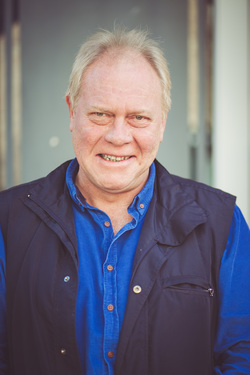 Dr Leon van Vuuren says young people need to understand their responsibility to act ethically even if they find themselves in a work environment where unethical behaviour is the norm Dr Leon van Vuuren says young people need to understand their responsibility to act ethically even if they find themselves in a work environment where unethical behaviour is the norm Youth Day commemorates the brave young people who took a stand against injustice in 1976. Important as that commemoration is, we must use this day to remind ourselves that that today’s youth face their own challenges when it comes to building better lives and a better South Africa. Doing this means equipping themselves to make the right ethical choices in their own lives, including at the workplace. “Young people entering the job market for the first time need to understand their responsibility to act ethically even if they find themselves in a work environment where unethical behaviour is the norm,” says Dr Leon van Vuuren, Executive: Professional and Business Ethics at the Ethics Institute of South Africa. “This can be exceptionally hard especially given the difficulties of finding a job in the first place. For most people, resigning is not an option—so what are they to do in a work environment that makes them feel uncomfortable?” The one option is to conform to peer pressure, and even to compromise one’s own beliefs by adopting some of the questionable practices of fellow workers. These might include inflating expense claims, indulging in vicious gossip about co-workers, sexually harassing colleagues or accepting gifts from suppliers. Such workplaces, Van Vuuren says, have their own language of justification for such acts: “Everybody does it”, “That’s how we always do things here”, “We’re all overworked and underpaid—the company makes big profits”, “It’s a grey area”. Many young people have already formed habits to participate in ethically questionable activities such as peer-to-peer filesharing to access pirated software, videos and music, as well as buying fake DVDs, cigarettes or designer gear, says Van Vuuren. This might predispose them to just “go with the flow”. “That would be a mistake because working in a rotten organisation is as soul-destroying as living in a rotten society,” Van Vuuren argues. “In the end, as we seem to be seeing with FIFA, unethical behaviour can become endemic and compromise not only the whole organisation but everybody in it.” If one finds oneself in an unethical organisation, and leaving is not an option, Van Vuuren says that the only course is to try influencing the corporate culture for the better. To do this, young people need to equip themselves by developing a moral or ethical sense so they can understand that there are ethical implications to business decisions, and that the bottom line is not all that matters. “Moral courage will be necessary—acting against what seem to be one’s own interests and prevailing custom isn’t easy. But keep in mind that doing the right thing has benefits over the longer term,” he says. “It’s also important to cultivate a moral imagination so one can craft compromise positions that satisfy most stakeholders.” An example of the latter would be a gift policy that allows gifts under a certain value to be accepted, even though, strictly speaking, any gift creates the expectation of reciprocity. Armed with a moral competence, young people can begin to lead by example. They should take heart from the fact that most people know what is right, but are easily led to make the wrong choices. One practical thing even new recruits can do is to talk about ethics in a non-judgemental way, perhaps just by asking questions like, “Isn’t there another way to do this?” or “Wouldn’t our shareholders be unhappy about this?” “I’ve said that courage is necessary, but we must recognise that being out of step with your peers is a lonely business,” Van Vuuren concludes. “My advice would also be for a young person in this situation to find ethical allies. It’s easy to discover who are the most trusted people within the company, who the ethical role models are. Get those people to become your mentors, and acting ethically will become that much easier. Humans are ethical creatures, and when we act contrary to our ethical beliefs we cannot be happy.” ENDS MEDIA CONTACT: Juanita Vorster, 079 523 8374, juanita@thatpoint.co.za, www.atthatpoint.co.za For more information on EthicsSA please visit: Website: www.ethicssa.org LinkedIn: Ethics Institute of South Africa Facebook: Ethics Institute of South Africa
0 Comments
Your comment will be posted after it is approved.
Leave a Reply. |
Welcome to the newsroom of The Ethics Institute. For media releases prior to August 2014 please click here.
Archives
August 2017
Categories
All
|

 RSS Feed
RSS Feed